Can A Diesel Hot Hatch Like The Seat Leon TDI 184 Convince Gearheads To Cheat On Petrol?
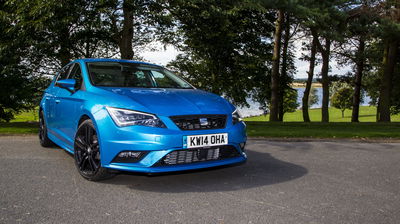
Like it or not, it’s getting harder to justify having high-powered petrol cars with the way fuel prices are going. Even though performance cars are more economical than ever before, for some - particularly those who clock a load of miles each year - shelling out all that cash on high tax brackets and ludicrously expensive fuel simply cannot be justified. But can a car fan stay true to his or her passion when switching to a diesel to lower the cost of motoring? With something like Seat’s Leon FR TDI 184, I’m hoping that’s the case.
On paper, it all looks pretty promising. The 2.0-litre turbo diesel engine powering the front wheels produces a useful 181bhp, but the figure which stands out is the torque, all 280lb ft of it. That’s a higher figure than the petrol-powered Leon Cupra 280 (258lb ft), in case you were wondering.
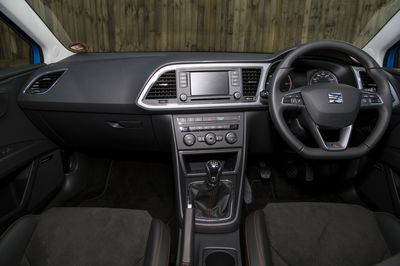
It looks as good as the aforementioned Cupra in the sportier FR bodykit it’s wearing here (the 184 version of the TDI is only available in this trim level), and has a claimed combined economy figure of 65mpg. Despite being economical, it’ll do 0-62mph in 7.5 seconds and top out at 142mph. At the less pointy - but still brisk - end of what you’d consider ‘hot hatch’ territory, in other words.
My week with the car, however, didn’t begin particularly well. There are cars you gel with straight away, but the Leon wasn’t one of them for me. I found myself irritated with a plethora of niggly faults, from the titchy sat-nav screen with its rubbish graphics, to the overactive parking sensors which I’m pretty sure could be set off by a small insect flying past the rear bumper. The optional adaptive cruise control also briefly slows you down at random intervals, even if there’s nothing in front of you.
A few days and a few hundred miles later, however, I started to see the Leon for the great car it was
The interior, which in our test car was a half Alcantara, half leather concoction, smelt a little bit odd, but by far the worst crime committed by the interior was the fuel gauge. It’s one of those daft LED ones, made up of eight little segments. This means it’s nowhere near as accurate as an analogue one - particularly in an economical car like this where the difference between one bar to the next could be anything over 60 miles - so what’s the advantage of making it this way?
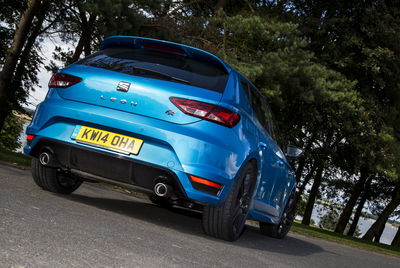
A few days and a few hundred miles later, however, I started to see the Leon for the great car it is. While you can’t beat the excitement of buzzing a petrol engine to the limiter before each shift, that torquey punch from the diesel makes the Leon incredibly quick at covering ground, launching you out of every corner with vigour. With the revs much lower, it’s deceptively quick; it’s one of those cars that gives you a surprise when you glance at the speedo to see how fast you’re actually going. Certainly, the 2.0-litre engine doesn’t supply a particularly inspiring soundtrack to the action, but what four-pot diesel does?
That corner exit punch is backed up by superb drivability. The steering is sharp and spot on in terms of weight, and the car stays impressively tidy even when cornering at a decent pace; inducing a noticeable amount body roll takes some pretty brazen commitment.
It didn’t torque steer as much as I’d been expecting, either. With that 280lb ft of pulling power being lobbed through the front wheels I was certain a boot-full would make the steering wheel writhe about in an unruly fashion, but save for the occasional tug under full throttle, there wasn’t a whole lot to be felt.
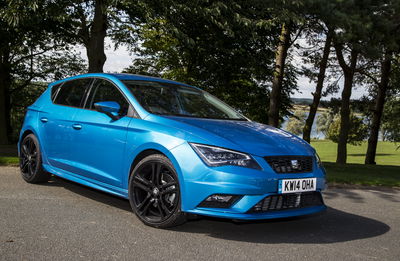
The most impressive thing, though, is that even after an afternoon of driving with a very unsympathetic right foot, I’d averaged 35mpg. As usual, the lab-obtained official combined figure - 65mpg - doesn’t bear any relevance to the real world, but on a long run it’s possible to push 60mpg, and throughout the loan the overall MPG sat at 42mpg.
But MPG isn’t the only practicality box the Leon ticks. It’s very spacious, has good all-round visibility, and even though the FR has slightly lower and stiffer suspension compared to other Leons, it rides well and is jolly comfortable.
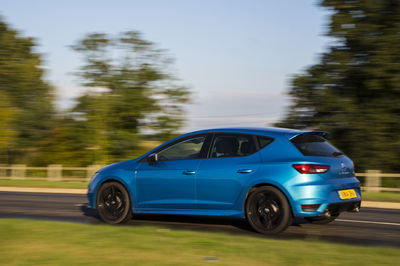
I’m also a big fan of the looks. The overall shape isn’t a million miles away from the related VW Golf - which sits on the same VW Group MQB chassis - but it’s a much sharper design, and looks immeasurably better than the bloated, almost MPV-esque Mk2 Leon which bowed out in 2012. With some bigger wheels and the FR kit it looks better yet, but I’m not so sure the ‘Sports Styling Pack’ (which includes a rear diffuser and twin exhaust combo, a lower front bumper and side skirts) fitted to our test car is really worth spending £2750 on.
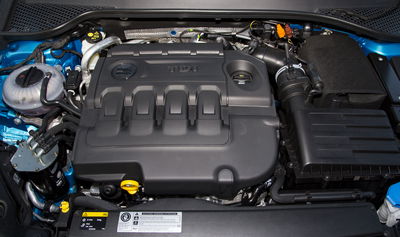
On the subject of options, the Styling Pack and a few other choices gave ‘our’ car a pretty hefty price tag of £28,643. Most of the options - other than the stunning Alor Blue paint, a £700 tick box - aren’t really worth bothering with, because for £22,820, the base FR 184 is generously equipped as it is. As a bonus, the technology pack which includes the sat-nav and digital radio is a free option at the time of writing. If you bought the VW Golf GTD, a car with the same engine and underpinnings, you’d need at least £26,420, plus an extra £750 for navigation.
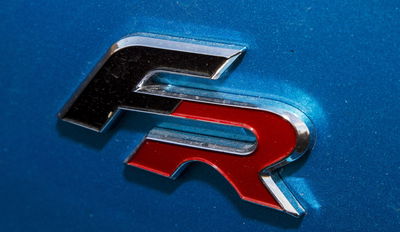
With that in mind, I’d stick with the sexier Seat. But in diesel form, can it really make an acceptable performance car? No. Why? Because it goes far beyond acceptable. It’s genuinely one of the most enjoyable cars I’ve driven recently. Although you drive it in a very different manner to a similarly-powered petrol - making the most of all the torque - it’s an incredibly quick and satisfying thing to blast from point to point.
It’s a car I wanted to drive just for the sake of it, and it proves that an oil burner needn’t be the boring choice.

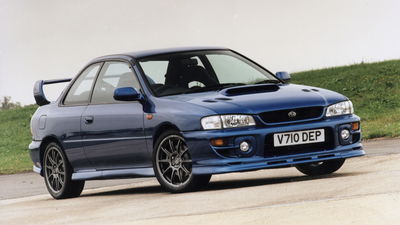













Comments
No comments found.